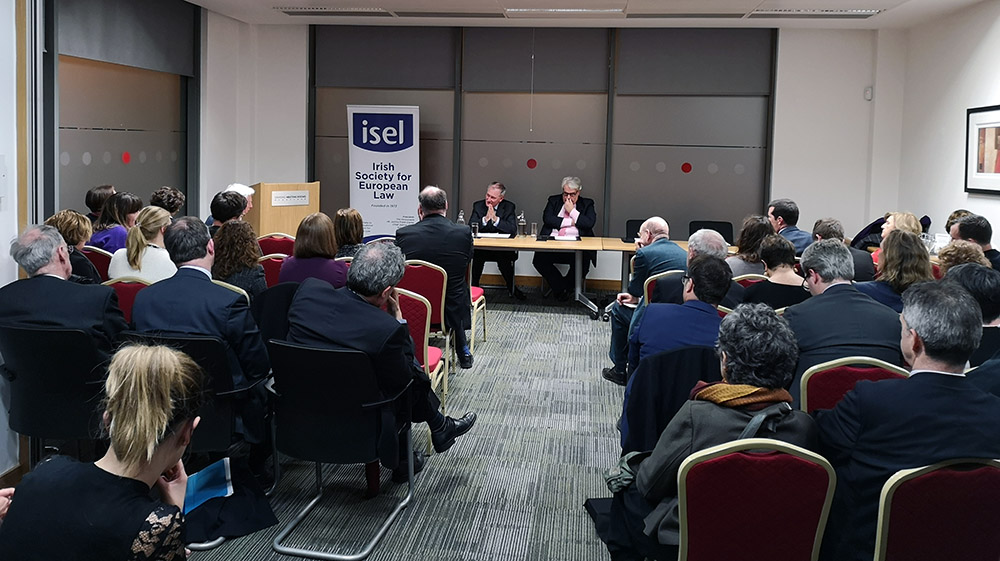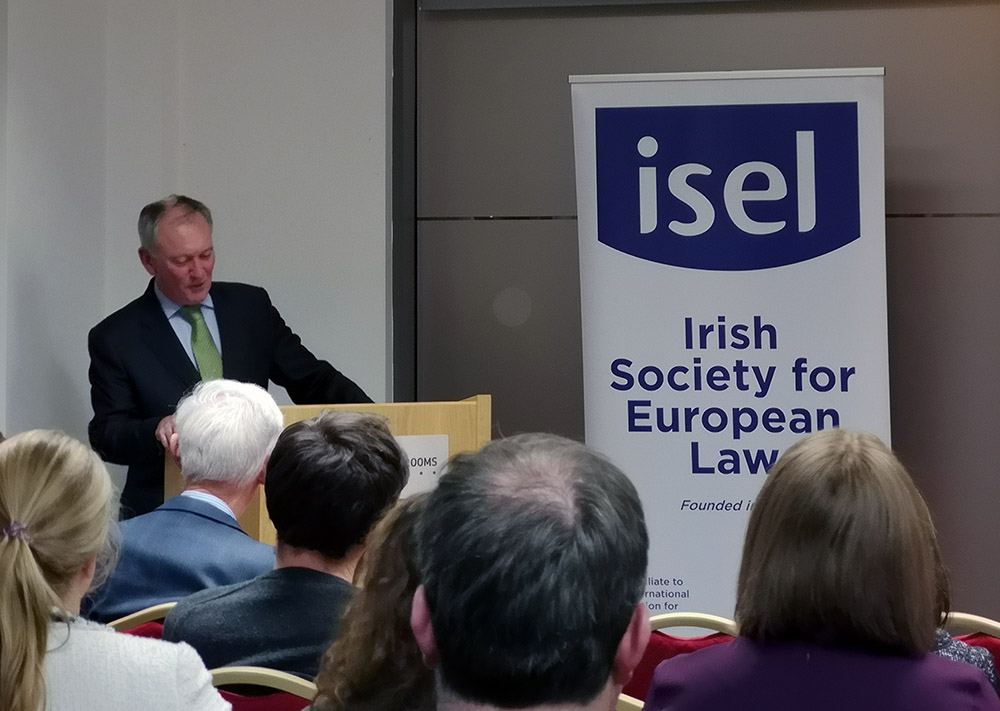Irish judge on EU court welcomes indications that EU rules to protect rule of law ‘are working’

Mr Justice Anthony Collins, one of two Irish judges on the EU General Court, has welcomed the “good news” that EU rules designed to protect the rule of law “are working”.
Mr Justice Collins and the Chief Justice of Ireland, Mr Justice Frank Clarke, addressed the state of the rule of law in Europe at a lecture hosted by the Irish Society for European Law (ISEL).
Reflecting on the contemporary threats to the rule of law in the EU today, Mr Justice Collins turned immediately to recent developments in Poland and Hungary, where right-wing populist governments have made high-profile attacks on the judiciary.
Mr Collins enumerated on the various acts of the governments of Mateusz Morawiecki and Viktor Orbán which infringe upon the independence of the judiciary.
In Poland, changes to the rules on judicial appointments and term limits have been used in an attempt to replace existing judges with the government’s favoured judicial appointments. Meanwhile, in Hungary, changes to the rules related to judicial promotions have been made with the intention of dissuading judges from effectively investigating corruption.
Mr Justice Collins noted that such attacks on the judiciary were not a uniquely European phenomenon, citing US President Donald Trump’s recent description of a judge as an “Obama judge”, aimed at undermining public confidence in the judiciary. Likewise, in the UK, High Court judges considering the Miller case were described as “enemies of the people” by The Daily Mail, indicating a global trend of right-wing populist attacks on the judiciary.

Highlighting the threat that this poses to the EU, Mr Justice Collins said: “Mutual trust in the integrity of the judicial systems of the member states is what underscores the rules on mutual recognition of member state laws.”
He pointed to a recent case in which Ms Justice Aileen Donnelly temporarily halted the extradition of a Polish national as evidence of a breach of this mutual trust.
However, Mr Justice Collins struck a positive note in his conclusion.
“The good news is that EU rules are working,” he said. “The ordinary mechanisms for ensuring the rule of law is respected by member states, namely the preliminary reference procedure, has been successfully used to prevent potential infringements against the judiciary. The nuclear option of Article 7.1 of the Treaty of the European Union has yet to be used.”
Mr Justice Clarke raised the point that, as it is national courts themselves that make preliminary references to the EU courts, one must be confident that the national courts are sufficiently independent enough to make the preliminary reference in the first place.
The 16th Annual Brian Walsh Lecture, hosted by ISEL, was organised by the family and former colleagues of the late Mr Justice Brian Walsh of the Supreme Court, widely regarded one of the most prominent reforming judges in Ireland of the 20th century.
Kevin Burns, Irish Legal News






